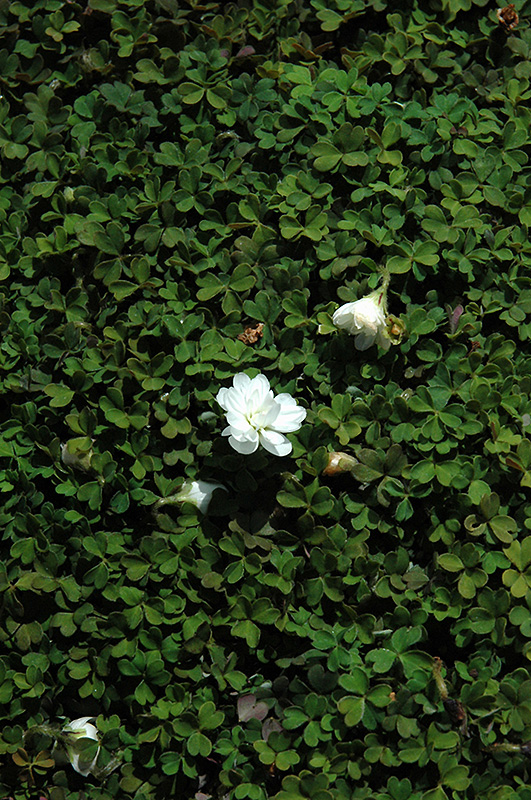Plant Finder
Nelson Wood Sorrel
Oxalis magellanica 'Nelson'
Height: 2 inches
Spacing: 12 inches
Sunlight:
![]()
![]()
Hardiness Zone: 6b
Ornamental Features
Nelson Wood Sorrel features dainty double white tubular flowers at the ends of the stems from late spring to mid summer. Its tiny compound leaves remain forest green in color throughout the year.
Landscape Attributes
Nelson Wood Sorrel is a dense herbaceous evergreen perennial with a ground-hugging habit of growth. It brings an extremely fine and delicate texture to the garden composition and should be used to full effect.
This plant will require occasional maintenance and upkeep, and should not require much pruning, except when necessary, such as to remove dieback. Deer don't particularly care for this plant and will usually leave it alone in favor of tastier treats. It has no significant negative characteristics.
Nelson Wood Sorrel is recommended for the following landscape applications;
- Mass Planting
- Rock/Alpine Gardens
- General Garden Use
- Groundcover
Planting & Growing
Nelson Wood Sorrel will grow to be only 2 inches tall at maturity, with a spread of 16 inches. When grown in masses or used as a bedding plant, individual plants should be spaced approximately 12 inches apart. Its foliage tends to remain low and dense right to the ground. It grows at a medium rate, and under ideal conditions can be expected to live for approximately 5 years. As an evegreen perennial, this plant will typically keep its form and foliage year-round.
This plant does best in full sun to partial shade. It does best in average to evenly moist conditions, but will not tolerate standing water. It is not particular as to soil type or pH. It is somewhat tolerant of urban pollution. This is a selected variety of a species not originally from North America. It can be propagated by cuttings; however, as a cultivated variety, be aware that it may be subject to certain restrictions or prohibitions on propagation.




